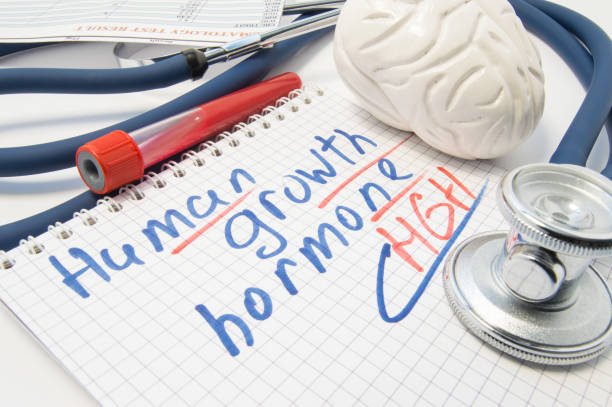
Human growth hormone (HGH) is a vital component in the complex machinery of the human body. It orchestrates various growth and metabolic processes, essential from infancy to adulthood. This article will examine the multifaceted role of HGH, exploring its significance in different life stages and physiological functions. To facilitate further understanding, you can search by typing ‘HGH clinic near me’ to find local resources and professional guidance regarding HGH treatment and its implications.
Understanding Human Growth Hormone
Human Growth Hormone (HGH) is a peptide hormone the pituitary gland makes. The pitutary gland is located at the base of the brain. This hormone is essential for growth, cell regeneration, and keeping healthy human tissue, including that of the brain and various vital organs. HGH stimulates the liver to produce an insulin-like protein that produces cartilage cells, which play a part in bone and organ growth, as well as muscle protein synthesis. It is crucial in processes involving growth and development, tissue repair, muscle growth, bone strength, metabolism, and heart function.
HGH in Childhood Development
During childhood and adolescence, HGH is particularly important. It drives the rapid growth experienced during these stages, influencing height and the development of bones and muscles. Beyond physical growth, HGH also impacts a child’s overall development, including the maturation of organs and systems. It helps maintain, build, and repair healthy tissue in the brain and other organs. This hormone can accelerate healing and repair muscles.
HGH and Metabolism
HGH significantly influences the body’s metabolism. It aids in the metabolism of fats and sugars, ensuring that the body efficiently uses these for energy. It promotes the breakdown of lipids (fats), which includes the conversion of body fat into energy that the muscles can use. This process is critical in maintaining healthy body composition and energy levels, especially as the body ages and metabolism naturally slows down.
HGH in Adult Health
In adults, HGH is not just about maintaining stature; it’s about preserving muscle mass, supporting bone density, and sustaining the health of body tissues. HGH levels naturally decrease with age, which is associated with signs of aging like increased abdominal fat, reduced muscle mass, and diminished bone density. Maintaining balanced HGH levels is thus vital for overall health and well-being in adulthood.
HGH Deficiency and Supplementation
HGH deficiency can lead to a variety of health issues. In children, it manifests as growth failure, and in adults, it can result in increased fat accumulation, decreased muscle mass, and reduced bone density, alongside a higher risk of cardiovascular diseases. The administration of HGH supplementation, under strict medical supervision, can alleviate these symptoms. HGH therapy has been used in treating children with stunted growth and adults with HGH deficiency due to pituitary tumors or related treatment.
The Future of HGH Research and Treatment
The future of HGH research holds much promise. Advancements have led to the synthetic production of HGH, making treatments more accessible and safer. Current research is exploring the broader implications of HGH in aging, muscle-wasting diseases, and metabolic disorders. Ongoing studies aim to refine HGH therapy, balancing efficacy with minimizing potential side effects.
Ethical Considerations of HGH
The ethical discourse surrounding HGH emphasizes the importance of using this hormone solely for medically approved purposes and under professional guidance, highlighting the need for stringent policies to prevent its misuse and protect public health.
Conclusion
In conclusion, Human Growth Hormone plays a critical role in the body, influencing growth, metabolism, and overall health. The awareness and accessibility of HGH treatments are growing, as evident by the fact that you can search by typing‘HGH clinic near me’’ to find relevant local resources.The research and application of HGH therapy continue to evolve, offering hope for those with deficiencies and contributing to a broader understanding of human health and aging. As the field progresses, new and innovative uses for HGH will likely emerge, further underscoring its importance in human physiology.



